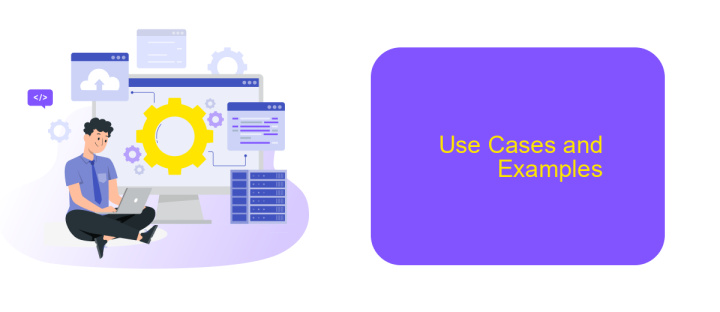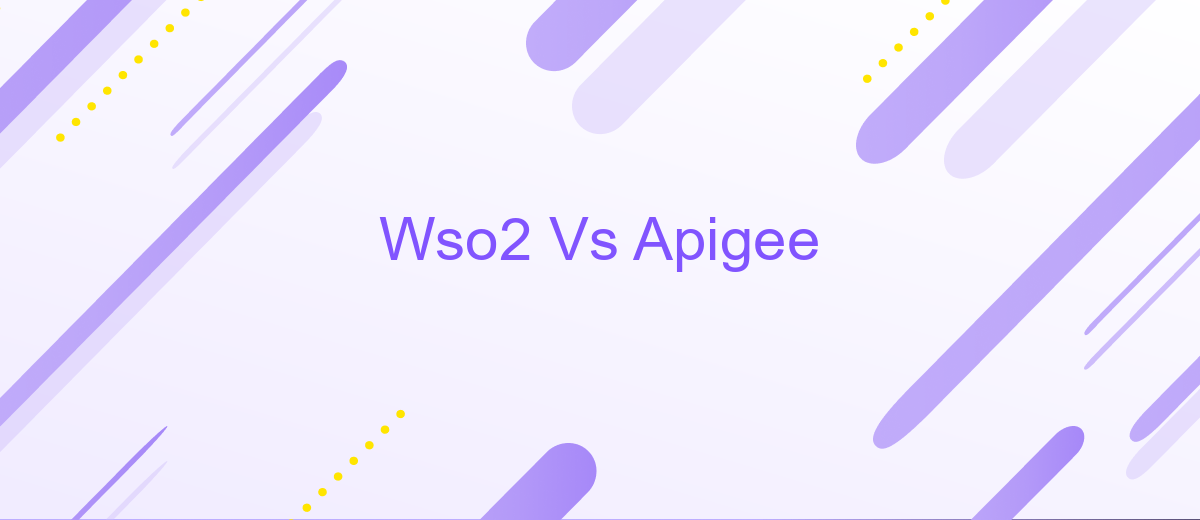Wso2 Vs Apigee
In the rapidly evolving landscape of API management, choosing the right platform is crucial for seamless integration and performance. WSO2 and Apigee stand out as leading contenders, each offering unique features and capabilities. This article delves into a comparative analysis of WSO2 and Apigee, examining their strengths and weaknesses to help you make an informed decision for your enterprise needs.
Introduction
In the rapidly evolving landscape of API management, choosing the right platform is crucial for businesses aiming to streamline their operations and enhance their digital capabilities. Two of the leading solutions in this domain are Wso2 and Apigee. Both platforms offer robust features and functionalities, but their approaches and strengths can vary significantly.
- Wso2: Known for its open-source nature and extensive customization options.
- Apigee: A Google Cloud product that excels in providing comprehensive API analytics and security features.
Understanding the differences between Wso2 and Apigee can help organizations make informed decisions tailored to their specific needs. Whether it's the flexibility of Wso2 or the advanced analytics of Apigee, selecting the right API management tool is essential for optimizing integration processes and enhancing overall efficiency. Additionally, services like ApiX-Drive can further simplify integration setups, making it easier to connect various applications and automate workflows seamlessly.
Architecture and Components

WSO2 and Apigee both offer robust API management solutions, but their architectures and components vary significantly. WSO2 adopts a modular architecture, which allows for flexible deployment and scalability. It includes components such as the API Manager, Identity Server, and Enterprise Integrator, which can be integrated seamlessly to provide a comprehensive solution. WSO2's architecture is designed to be highly customizable, supporting on-premises, cloud, and hybrid deployments. This flexibility makes it suitable for organizations with diverse IT environments and complex integration needs.
On the other hand, Apigee, a Google Cloud product, features a more streamlined architecture focused on ease of use and rapid deployment. It includes components like the API Gateway, Developer Portal, and Analytics, all of which are tightly integrated to provide a cohesive experience. Apigee's cloud-native design emphasizes scalability and reliability, making it ideal for enterprises looking to leverage cloud infrastructure. For organizations needing advanced integration capabilities, tools like ApiX-Drive can be used alongside Apigee to automate and streamline API integrations, enhancing overall efficiency and reducing manual effort.
Features and Functionality

When comparing Wso2 and Apigee, it is essential to evaluate their features and functionality to determine which API management platform best suits your needs. Both platforms offer robust tools for API creation, management, and security, but they have distinct features that set them apart.
- API Gateway: Both Wso2 and Apigee provide powerful API gateways for routing, transformation, and orchestration of API requests.
- Security: Wso2 offers extensive security measures, including OAuth2, JWT, and API key management, while Apigee provides similar security features with additional support for SAML and LDAP integration.
- Analytics: Apigee excels in API analytics, offering detailed insights and reports on API usage, performance, and traffic patterns. Wso2 also provides analytics but with less granularity.
- Integration: Wso2 supports seamless integration with various enterprise systems and cloud services. Apigee, on the other hand, offers integration capabilities through its partnership with ApiX-Drive, enabling easy connection with numerous third-party applications.
- Developer Portal: Both platforms offer customizable developer portals to facilitate API documentation and developer onboarding.
In conclusion, Wso2 and Apigee both provide comprehensive solutions for API management, each with unique strengths. Wso2 is ideal for organizations seeking extensive security and integration capabilities, while Apigee stands out with its superior analytics and partnerships, such as with ApiX-Drive, enhancing integration options.
Use Cases and Examples

WSO2 and Apigee are both powerful API management platforms, each with its own set of use cases. WSO2 is often chosen for its open-source nature and flexibility, making it a favorite among organizations that require extensive customization. Apigee, on the other hand, is known for its robust analytics and ease of use, appealing to enterprises looking for a comprehensive solution with minimal configuration.
One common use case for WSO2 is in scenarios where businesses need to integrate multiple legacy systems. Its ability to handle complex integrations and provide detailed monitoring tools makes it ideal for such environments. Apigee excels in scenarios where quick deployment and scalability are crucial, such as in startups or rapidly growing companies.
- WSO2: Integrating legacy systems and customizing API management solutions.
- Apigee: Rapid deployment, scalability, and comprehensive analytics.
- ApiX-Drive: Automating integrations between various applications and services.
For example, a company using ApiX-Drive can leverage its automation capabilities to streamline workflows between WSO2 or Apigee and other business applications. This ensures seamless data flow and enhances operational efficiency.
Conclusion
In conclusion, both Wso2 and Apigee offer robust solutions for API management, each with its unique strengths and capabilities. Wso2 stands out with its open-source nature and extensive customization options, making it ideal for organizations seeking a highly adaptable platform. On the other hand, Apigee excels in providing comprehensive analytics and a user-friendly interface, which can significantly streamline the API management process for businesses of all sizes.
When considering integration and automation, services like ApiX-Drive can further enhance the functionality of both Wso2 and Apigee. ApiX-Drive simplifies the process of connecting various applications and automating workflows, thereby reducing the complexity of API integrations. Ultimately, the choice between Wso2 and Apigee will depend on your organization’s specific needs, budget, and technical expertise. Both platforms offer powerful tools to help you achieve efficient and effective API management.


FAQ
What are the key differences between WSO2 and Apigee?
Which platform offers better scalability for large enterprises, WSO2 or Apigee?
How do WSO2 and Apigee handle API security?
Which platform is more cost-effective, WSO2 or Apigee?
What are some alternatives to WSO2 and Apigee for API integration and automation?
Routine tasks take a lot of time from employees? Do they burn out, do not have enough working day for the main duties and important things? Do you understand that the only way out of this situation in modern realities is automation? Try Apix-Drive for free and make sure that the online connector in 5 minutes of setting up integration will remove a significant part of the routine from your life and free up time for you and your employees.

